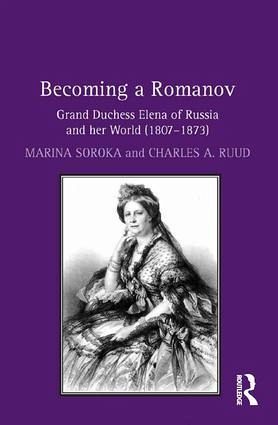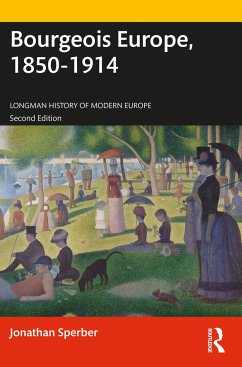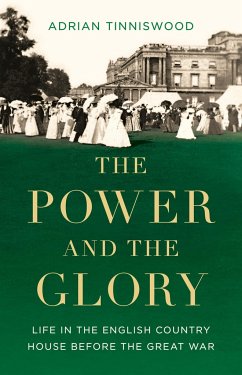
Becoming a Romanov. Grand Duchess Elena of Russia and her World (1807-1873)
Versandkostenfrei!
Versandfertig in 1-2 Wochen
167,99 €
inkl. MwSt.
Weitere Ausgaben:

PAYBACK Punkte
84 °P sammeln!
The Russian Great Reforms of the 1860s were the last major modernizing effort by the Romanov dynasty. From 1855 to 1861, Grand Duchess Elena, born Princess Charlotte of Wÿrttemberg (1807-1873), acted as the spokeswoman for the reform-minded circles of Russian society, bringing before her nephew Emperor Alexander II a group of civic-minded experts who formed the core of the committee that prepared the greatest and most complex of the reforms, the abolition of serfdom in Russia. The Grand Duchess's involvement in these crucial events in Russian history highlights the considerable influence ar...
The Russian Great Reforms of the 1860s were the last major modernizing effort by the Romanov dynasty. From 1855 to 1861, Grand Duchess Elena, born Princess Charlotte of Wÿrttemberg (1807-1873), acted as the spokeswoman for the reform-minded circles of Russian society, bringing before her nephew Emperor Alexander II a group of civic-minded experts who formed the core of the committee that prepared the greatest and most complex of the reforms, the abolition of serfdom in Russia. The Grand Duchess's involvement in these crucial events in Russian history highlights the considerable influence aristocratic women had in Russian society, quite unlike women of the same class and status in Western Europe. A study of the Grand Duchess Elena of Russia offers a new understanding of Russian and international events of the time, the Romanovs' role in them, the degree of autonomy enjoyed by high-born women in Russia and the ways in which new ideas gained ground in the nineteenth-century Russian empire. Based on abundant and largely unused archival sources, published documents and literature of the period in French, Russian, German, Italian and English, this is the first book about Grand Duchess Elena and it expertly interweaves the story of a woman's life with that of Imperial Russian high politics.














